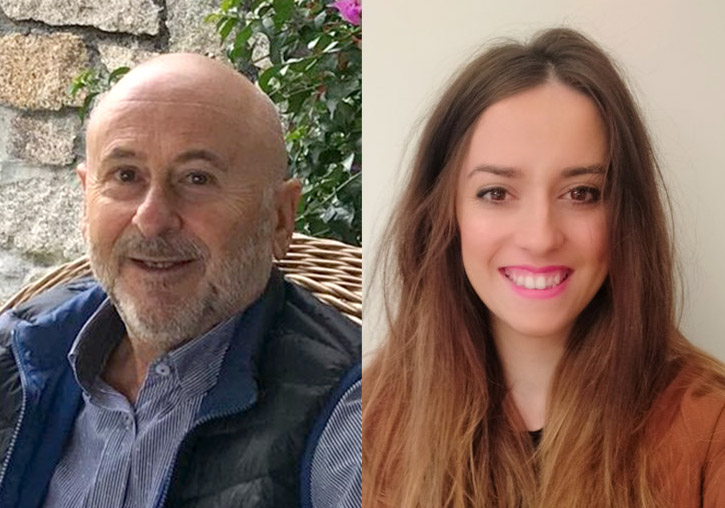The influence of the pandemic on insomnia, hostility and depression is studied in patients with other diseases
- Scientific Culture and Innovation Unit
- December 17th, 2021

Selene Valero and José Gil, researchers at the Faculty of Psychology and Speech Therapy of the University of Valencia, have studied the changes in sleep behaviour and emotional stability of healthy patients and with previous pathologies before and after the COVID-19 pandemic.
As a result of the epidemic, the mental health of the entire population has been affected. The study by Valero and Gil, from the Department of Personality, Evaluation and Psychological Treatments, has shown that 40% of the sample present severe or moderate symptoms of depression. 30% say they have recurring nervousness or worries, typical symptoms of anxiety.
The increase in hostility and irritability in people without previous pathologies (the non-clinical sample of the study) stands out, which has affected interpersonal relationships, where communication is more difficult. These people are comparatively the ones who have the fewest sleep problems and feel the most satisfied with their life.
The article published in the journal Know and Share Psychology indicates that the clinical sample (people with some type of disease or disorder) has only worsened in their sleep quality during the pandemic. However, they do not show increased irritability and there are no indicators that they have higher levels of anxiety or depression. Nor has the perception of his own life worsened, which could be explained by having received treatment during the pandemic.
The authors point out: “it is relevant to assess these aspects because they allow us to preventively detect risk signs in adapting to this highly stressful situation and prevent the development of a psychological disorder or reduce the severity of the symptoms”.
To reach these conclusions, Selene Valero and José Gil asked the 69 people participating in the study to complete a form that would serve to “evaluate patterns of symptoms present in individuals”. This questionnaire, called SCL-90, allows observing the presence of up to 90 symptoms of different pathologies and psychological disorders, and can also establish intensity levels. Thanks to this tool, they were able to establish differences between different members of the sample and observe changes over time.
Article: Valero, S. and Gil, J. (2021) Estudio comparativo en muestra clínica y no clínica: consecuencias psicológicas de la crisis derivada del Covid-19. Know and Share Picology, Vol 2 (Nº3). DOI: https://doi.org/10.25115/kasp.v2i3.5044
File in: Recerca, innovació i transferència , Investigació a la UV , Facultat de Psicologia , Difusió i comunicació científica , Internacionalització recerca
















